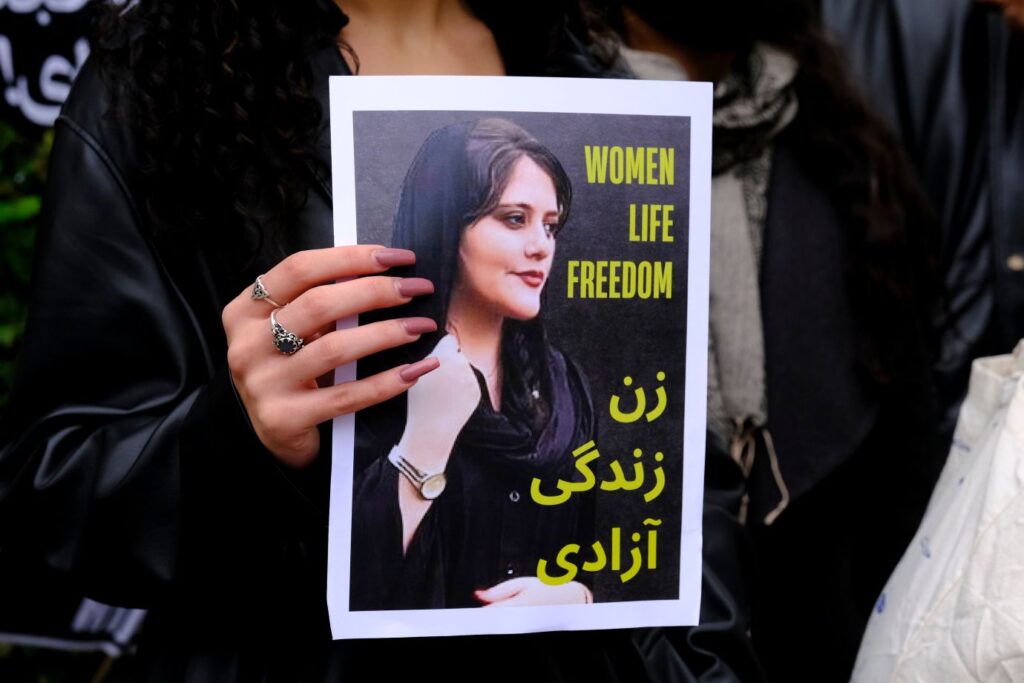People often tell me to stop watching the news. “It’s too depressing,” they say. “Stop doomscrolling it’s not good for your mental health.” And maybe they’re right. Maybe it would be easier to turn it all off, to retreat into the comfort of ignorance. But I can’t. Not when the chaos is unfolding so close to my homeland. Not when every headline feels like it could change the lives of my family.
I could write about the geopolitics of the region. I could analyse the power plays, the shifting alliances, the historical context. I could cite research and speak with authority. But what’s the point when the world feels like it’s teetering on the edge of something massive, something that could change everything?
The truth is, I’m scared.
I’m scared for my children, for the kind of world they’re inheriting. I’m scared for my family in Lebanon, unsure of what the next day might bring. I’m scared for the innocent people caught in the crossfire of a conflict that defies logic and morality. I’m scared for the women and children who want nothing more than to live in peace, but are instead trapped in a cycle of poverty, violence and fear.
There are so many thoughts swirling in my mind. So many emotions I can’t quite name. However, one news story got my blood boiling. I recently watched Benjamin Netanyahu speak directly to the women of Iran, invoking the memory of Mahsa Amini. Three years ago, 22-year-old Masha Amini died in the custody of Iranian police for violating the strict Hijab law by wearing the hijab improperly. Masha’s death triggered global outrage and highlighted the growing oppression of women in Iran and the archaic laws of the country. Out of the worldwide protests the “Woman, Life, Freedom” movement was borne. Netanyahu in a recent appeal to the Iranian people said “This is your opportunity to stand up to the regime..It has never been weaker. This is your opportunity to stand up and let your voices be heard. Woman, Life, Freedom Zan, Zendegi, Azadin”. Netanyahu has positioned himself as their liberator, claiming that his actions were meant to free them from the grip of the Iranian regime.
Let me be clear, I will never defend the Iranian regime. Its oppression of women and its archaic laws are undeniable. But to use that suffering as a justification for bombing a nation? That is not liberation. That is exploitation. This is a display of zero empathy for the real dire situations of Iranian women.
History has shown us what happens when Western powers use the language of freedom to justify military intervention in the Middle East. We saw it in Afghanistan. Two decades after the U.S. invasion, Afghan women who were promised liberation are once again living under Taliban rule. The same powers that claimed to protect them walked away, leaving behind shattered lives and broken promises. The oppression of Afghan women continues unabated. Afghan women are not only obliged to cover their faces but now forbidden from raising their voices, singing or reading aloud in public. They are excluded from education and work. The situation in Afghanistan has been referred to as ‘gender apartheid’.
The story of Afghan women is not one of freedom delivered by foreign missiles. It is a story of resilience in the face of betrayal. It is a reminder that true liberation cannot be imposed by patriarchal empires. These wars have never been about justice. They have been about power, profit, and control, leaving behind a trail of destruction, poverty, and trauma. The fact that some women wear the hijab/veil should never be used as a justification for military intervention or for imposing external ideas of liberation. Especially when there’s no clear or stable alternative to replace a fallen regime, just ask Afghan women how promises of freedom has turned into devastation.
What we’re witnessing in the bombings carried out by Israel and the United States in Iran is not a mission of liberation but rather a brutal exhibition of patriarchal dominance, where war is commodified and human lives are reduced to expendable costs in a ruthless pursuit of control. I won’t turn away. I won’t stay silent. Because silence, too, is a form of complicity.
We cannot claim to stand with Iranian women, celebrating their courage and invoking their struggles only to leave them standing in the ruins of their own homes, surrounded by ash and loss. To promise them freedom, only to deliver devastation, is not solidarity. It’s betrayal.

